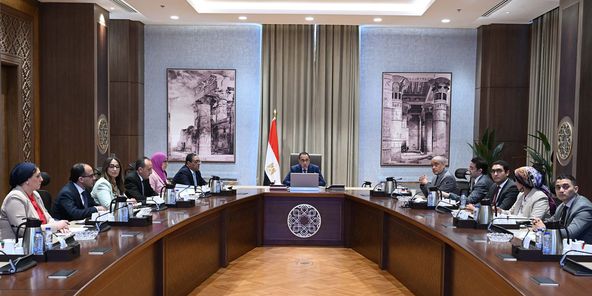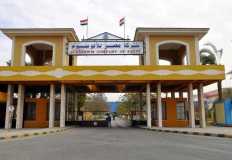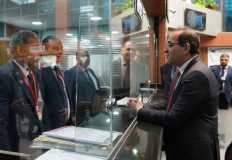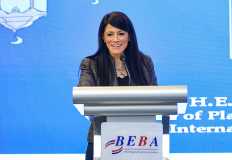
Prime Minister Dr. Moustafa Madbouly discussed Sunday, with officials from Elaraby Group proposals to increase local manufacturing rates for various products.
The event was attended by Dr.
Nahed Youssef, President of the General Authority for Industrial Development,
Engineer Mohamed Mahmoud Elaraby, CEO of Elaraby Group, Doaa Suleiman,
President of the Industrial Modernization Center, Engineer Mohamed
Abdel-Ghaffar Elaraby, Member of the Executive Council and President of the
Operations Group, and Engineer Mohamed Magdi Elaraby, President of the
Scientific Research Group of Elaraby Group.
Building on President
El-Sisi's directives to prioritize the industrial sector, Madbouly emphasized the government's unwavering commitment to its advancement.
He highlighted the sector's crucial role in achieving Egypt's economic, social,
and developmental goals.
Madbouly reaffirmed the state's dedication to providing comprehensive support for industry. This includes increasing the use of local components in manufactured goods and actively pursuing the localization of various industries within Egypt. These efforts aim to maximize Egypt's potential and capabilities in the industrial sector.
Engineer Mohamed Mahmoud
Elaraby presented Elaraby Group's achievements in localizing and
strengthening domestic industry. He specifically highlighted their ongoing
collaboration with the "Ebeda" (Start) initiative, which supports Egyptian
industry. This successful partnership has led to the localization of the air
conditioner compressor industry.
During the meeting, Engineer
Mohamed Mahmoud Elaraby presented the group's proposal to increase the
percentage of local components in manufacturing processes, through a detailed
table of the various components of the products. This will contribute to reaching
the main materials used in household appliances, including the equipment needed
to manufacture these materials.
Engineer Mohamed Mahmoud
Elaraby presented Elaraby Group's comprehensive proposal to increase the
percentage of local components in manufacturing. The proposal includes a
detailed breakdown of various components needed for household appliances,
including the equipment required to produce these materials.
Elaraby explained that this roadmap will serve multiple purposes. It will identify the percentage of local components achievable for each product and factory. Additionally, it will establish a clear path for each facility to deepen its local manufacturing capabilities, while pinpointing the key materials needed for production.
Engineer Mohamed Abdel Ghani
Elaraby identified a range of locally manufactured components readily available
for use in various products. He then focused on fostering collaboration and
integration within the manufacturing sector. This could involve joint ventures
for component production and procurement, followed by a strategic shift towards
local manufacturing of previously imported parts.





